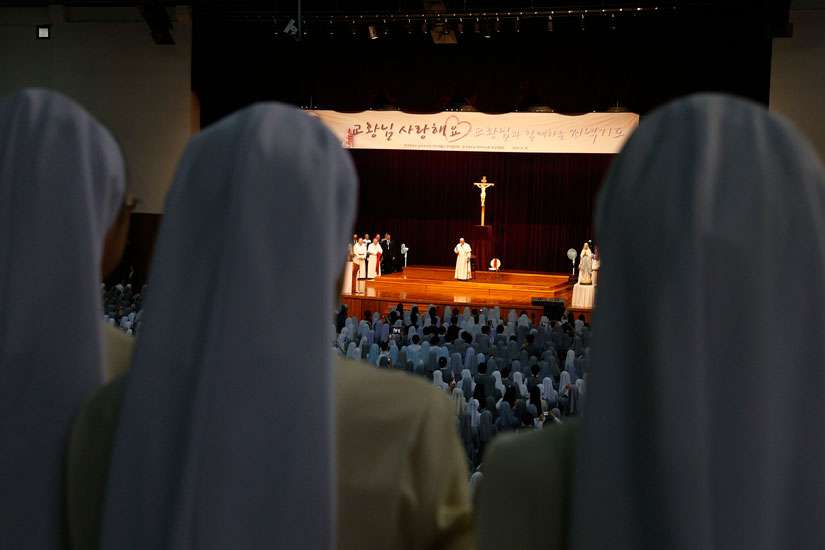"Let them know the affection and the warmth which the entire Christian people feels for them," the Pope said in a letter issued for the special year, which opened Nov. 30 and will close Feb. 2, 2016, the feast of the Presentation of the Lord.
The Apostolic Penitentiary, a Vatican court, issued a note Nov. 28 specifying that both lay and consecrated people can receive an indulgence for participating in events related to the Year of Consecrated Life, going to confession, receiving the Eucharist and offering prayers for the intentions of the Pope.
In his letter, Pope Francis also offered greetings to Orthodox communities of monks and nuns, and to members of Protestant religious orders, who also take vows of poverty, chastity and obedience and are "expressions of fraternal communion and service." Dialogue between Catholic religious and those of other traditions "can prove helpful for the greater journey toward the unity of all the churches," he said.
The bulk of the Pope's letter and video messages he sent for a Nov. 29 prayer vigil in Rome and the year's opening Mass the next day in St. Peter's Basilica were addressed specifically to the world's more than 900,000 Catholic religious priests, brothers, sisters and consecrated virgins.
"Leave your nests and go out to the peripheries," he told those at the vigil in the Basilica of St. Mary Major. "Live on the frontiers" where people are waiting to hear and understand the Gospel.
"Wake up the world, enlightening it with your prophetic and countercultural witness," he said in the message to those at Mass in St. Peter's the next morning.
"Being joyful," he said in the message, "being courageous" and "being men and women of communion" are the common traits of the founders of religious orders and are the key to their future.
The Pope's letter for the year explained that while he was writing as Pope, he was also writing as a Jesuit, "a brother who, like yourselves, is consecrated to the Lord."
Knowing the gifts and challenges of religious life from the inside, Pope Francis urged religious to "look to the past with gratitude," rediscovering the way their predecessors read "the signs of the times" and responded with creativity. However, it also involves recognizing the difficulties and inconsistencies resulting from human weakness and learning from them.
Religious are called "to live the present with passion" and "embrace the future with hope," he said, knowing that the Holy Spirit continues to inspire new responses to the needs of the Church and the world and to give religious the strength to be faithful servants of God.
Within communities, within dioceses and within the Church, he said, religious are called to be "experts in communion," a call that is prophetic in the modern world. "In a polarized society where different cultures experience difficulty in living alongside one another and where the powerless encounter oppression, where inequality abounds, we are called to offer a concrete model of community which, by acknowledging the dignity of each person and sharing our respective gifts, makes it possible to live as brothers and sisters."
"Don't be closed in on yourselves," he said, "don't be stifled by petty squabbles, don't remain a hostage to your own problems."
A person's attitude reflects what is in his or her heart, the Pope said, and for consecrated people that means "to know and show that God is able to fill our hearts to the brim with happiness."
"None of us," he said, "should be dour, discontented and dissatisfied, for a 'gloomy disciple is a disciple of gloom.' ”
Countering the decline in the number of people entering religious life in the West will not be the "result of brilliant vocations programs," the Pope said, but of meeting young people who are attracted by the joy they see in religious men and women.
The special mission of consecrated people in the Church has not ended, he told them. "A whole world awaits us: men and women who have lost all hope, families in difficulty, abandoned children, young people without a future, the elderly, sick and abandoned, those who are rich in the world's goods but impoverished within, men and women looking for a purpose in life, thirsting for the divine."


